Key Concepts to Understand
- Qualitative Observations: These are descriptive observations that involve the use of the five senses to gather information about the qualities of an object or event. For example, noting the color, texture, shape, and smell of a flower are qualitative observations.
- Quantitative Observations: These involve measurements and numerical data. This can include measurements of length, mass, volume, temperature, and other quantifiable characteristics.
- Direct Observations: When you observe something directly, using your own senses without the aid of any tools or instruments. For example, watching and noting the behavior of an animal in its natural habitat.
- Indirect Observations: These involve the use of tools or instruments to aid in the observation. For example, using a thermometer to measure the temperature of a substance.
Why Observations are Important
Observations form the foundation of scientific inquiry and are crucial for generating and testing hypotheses. They provide the raw data that scientists use to formulate explanations and make predictions about natural phenomena. Additionally, observations help scientists identify patterns, make comparisons, and draw conclusions about the world around them.
How to Make Effective Observations
- Be Objective: It's important to make observations without letting personal biases or preconceived notions influence what you see. Try to record only what you actually observe, not what you think should be there.
- Use Multiple Senses: Engage as many senses as possible when making observations. This helps in gathering a more comprehensive set of data about the object or event being observed.
- Record Everything: Even if something seems insignificant at the time, it could turn out to be important later on. Detailed and thorough note-taking is crucial for accurate and meaningful observations.
- Repeat Observations: It's often beneficial to observe the same phenomenon multiple times to ensure the reliability and consistency of your observations.
Practice Questions
- What is the difference between qualitative and quantitative observations? Provide an example of each.
- Why is it important for scientists to make objective observations?
- Describe a scenario where indirect observation would be more useful than direct observation.
- How can making repeated observations contribute to the reliability of scientific data?
[Observation] Related Worksheets and Study Guides:
.◂Science Worksheets and Study Guides Seventh Grade. Earthquakes
Study Guide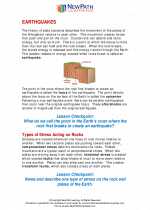 Earthquakes
Earthquakes  Activity Lesson
Activity Lesson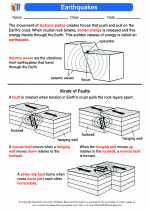 Earthquakes
Earthquakes  Worksheet/Answer key
Worksheet/Answer key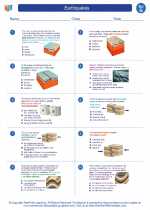 Earthquakes
Earthquakes  Worksheet/Answer key
Worksheet/Answer key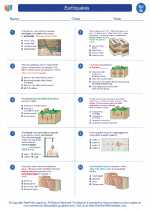 Earthquakes
Earthquakes  Worksheet/Answer key
Worksheet/Answer key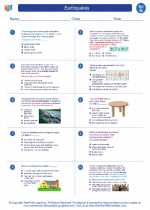 Earthquakes
Earthquakes  Worksheet/Answer key
Worksheet/Answer key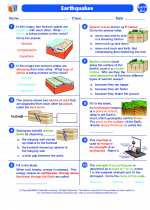 Earthquakes
Earthquakes  Worksheet/Answer key
Worksheet/Answer key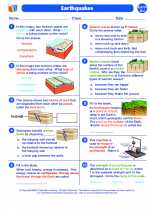 Earthquakes
Earthquakes  Vocabulary/Answer key
Vocabulary/Answer key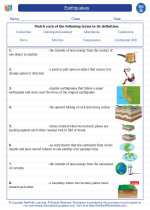 Earthquakes
Earthquakes  Vocabulary/Answer key
Vocabulary/Answer key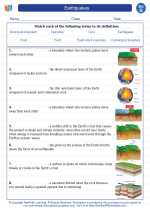 Earthquakes
Earthquakes  Vocabulary/Answer key
Vocabulary/Answer key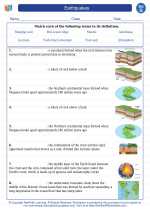 Earthquakes
Earthquakes  Vocabulary/Answer key
Vocabulary/Answer key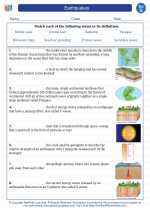 Earthquakes
Earthquakes  Vocabulary/Answer key
Vocabulary/Answer key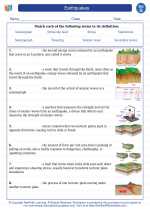 Earthquakes
Earthquakes  Vocabulary/Answer key
Vocabulary/Answer key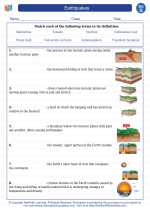 Earthquakes
Earthquakes  Vocabulary/Answer key
Vocabulary/Answer key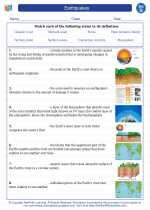 Earthquakes
Earthquakes 

 Activity Lesson
Activity Lesson
 Worksheet/Answer key
Worksheet/Answer key
 Worksheet/Answer key
Worksheet/Answer key
 Worksheet/Answer key
Worksheet/Answer key
 Worksheet/Answer key
Worksheet/Answer key
 Worksheet/Answer key
Worksheet/Answer key
 Vocabulary/Answer key
Vocabulary/Answer key
 Vocabulary/Answer key
Vocabulary/Answer key
 Vocabulary/Answer key
Vocabulary/Answer key
 Vocabulary/Answer key
Vocabulary/Answer key
 Vocabulary/Answer key
Vocabulary/Answer key
 Vocabulary/Answer key
Vocabulary/Answer key
 Vocabulary/Answer key
Vocabulary/Answer key
